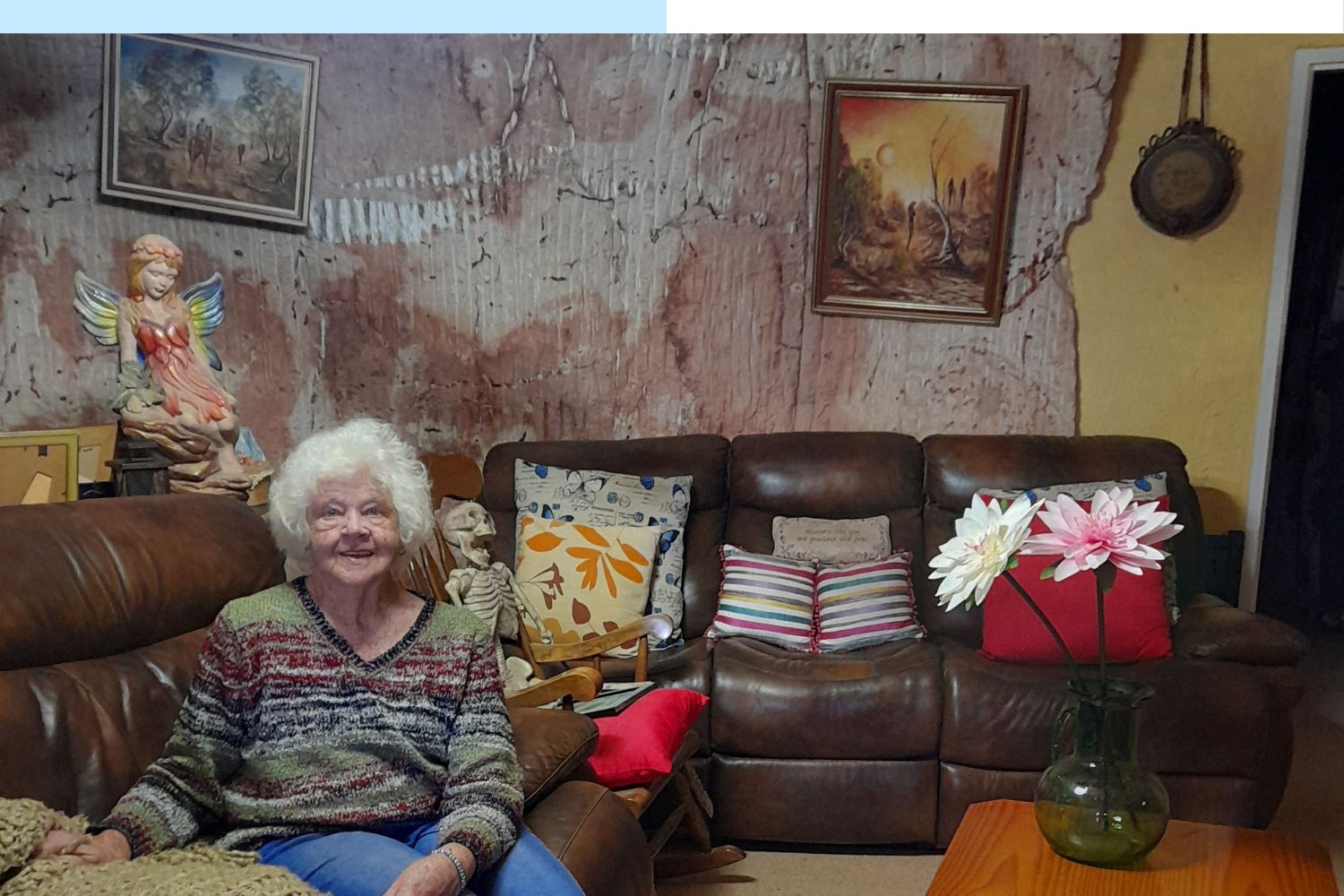As told to Astha Gupta
Heather Scammell, 61, of Berwick, Victoria was born and brought up in Australia, but people don’t believe her.
Here she tells her story in her own words…
Waiting to see the neurologist, I lay down on a bench in the hospital corridor.
I must have been so exhausted that I fell asleep because a nurse gently shook me awake.
Nine months earlier, I’d suffered a stroke, which affected my balance, short-term memory and left hand and leg movement.
I’d only just been allowed to return to my job as a nurse the day before. Now I was back in for a check-up.
‘You pushed yourself too hard,’ said the doctor.
‘I feel fine,’ I said, determined to get back to normal.
But a week later, I felt tingling up my arms, was exhausted and kept losing my balance.
Then, the day after that, I went for a walk and my legs seized up.
When my head began pounding, I fell to the ground crying.
Some joggers had to call an ambulance.
But when the paramedics asked me what my name was, I couldn’t get it out.
I couldn’t even remember what day it was.

At the hospital, my scans came back clear.
‘Are you trying to seek attention?’ the doctor asked. ‘There is nothing wrong with you.’
I couldn’t even answer as no words would come out.
I was beyond shocked at the accusation and my hubby Ken and our kids, Joel, 28, and Damanthi, 24, insisted that I be admitted to the stroke unit.
From there, I was referred to a rehabilitation unit, where a doctor told me the damage caused by my initial stroke had increased.
‘That’s why the scans didn’t pick up anything,’
he explained.
For six weeks, my speech remained jumbled up.
I came back home in a wheelchair, and my left hand and leg were still very weak.

Thankfully, a few days later, the stuttering stopped.
‘Darling, my voice is back,’ I said to Ken.
I’d never called him darling before, so he looked at me funnily.
‘I don’t know why I said that,’ I told him.
When my sisters came to visit me, I called them darling too.
‘I’ve put the pasta on,’ I said and my sisters began laughing.
‘You bunch of idiots, what’s wrong with you?’ I replied.
The next day, I called up a friend to share the good news of my voice coming back.
‘You’re tricking us,’ she said.
‘Why would I?’ I asked, feeling confused.
‘I want to record your voice,’ she said. ‘You don’t sound like yourself.’
When she played the recording, I was shocked.
‘This is not how I speak,’ I said.
‘Exactly,’ she said. ‘You sound Italian.’
The penny dropped – no wonder my sisters were making fun of me.
‘Why didn’t you say anything?’ I asked Ken.
‘I was just happy you could speak again,’ he said.
I saw my neurologist who reassured me I’d get my Aussie accent back.
‘You just have to concentrate on speaking how you used to before,’ he told me.
One day, Ken asked if I wanted to go swimming.
‘Yes, I have my costume and carrying bag,’ I replied.
We looked at each other.
I should have said, ‘I’ve chucked my thongs and towel in the bag.’
My Aussie lingo was gone!
I’d been born and brought up here, and prided myself on being called a true-blue Aussie.
Now, I didn’t know who I was.
‘This is ridiculous,’ I wept.
The accent wasn’t the only thing I’d lost – I got angry very fast, my speech got jumbled up if I was tired, I spoke without a filter and lost my patience with anyone using incorrect grammar.
I had memory loss, and concentration and balance issues and I was always fatigued.
Ken quit his job and became my carer.
Months passed and when my accent didn’t come back, I became depressed.
‘I’ve lost my identity,’ I said to the kids.
But I knew I had to be grateful for being alive and get on with life.
‘That’s the Aussie spirit,’ Joel replied.
‘You don’t sound like one, but you’re still Aussie at heart and that’s all that matters,’ Damanthi said.

I learnt to slowly accept the new me and got used to people asking me where I was from.
Then, almost three years after my second stroke, I was at home watching TV.
There was a show on about an English woman who had woken up with a Chinese accent after a migraine.
The experts said she had foreign accent syndrome (FAS) – a condition where people developed speech patterns different from their original accent due to some damage to the brain.
There was no cure for the condition and no scientific reason for why and how someone got the new accent.
There were fewer than 100 cases worldwide.
I went back to my neurologist and he confirmed I also had the rare condition.
One day, I was at my speech therapist, when I met another Aussie lady, Elaine, who had FAS too.
She spoke with a French accent. And we clicked instantly.
‘You’re the only person who really gets what I’m going through,’ I told her.
My speech now alters between German, Polish, or eastern European accents.
It was hard to accept, but I love my life again.
I have a wonderful family, my friends and I’m just glad to be here.










